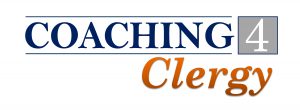
My CrossFit gym recently did a video interview with me. One of the questions was about what I’ve been working on in the gym. I was surprised by what popped out of my mouth. I said that I was discovering the importance of rest.
Before, I tried to exercise as much as I could, usually paying the price of exhaustion, muscle soreness, and slower progress. But my body couldn’t take it. I was walking like a really old man, hunched over and stiff. Now I realize that I need to rest, eat properly, and then I can exercise. That order is essential.
The lesson may be sinking in at the gym, but taking a break from work is still not always easy or comfortable for me. Instead, I find myself wrestling with resting, and I’ll even sneak in a couple of meetings here and there.
I tell myself these things just cannot wait until the rest period is over, but they absolutely can. Those meetings represent the “tyranny of the urgent,” coined by Charles Hummel in his book of the same name. I’m putting other people’s urgent priorities ahead of my own important commitment to rest.
This is a pattern with my leadership clients as well. For years, leadership coaching meant strategic planning, big picture thinking, and cultivating workplace culture. Today, we’re just as likely to discuss rest, eating right, taking care of yourself, and family relationships. Yes, you have a big vision, yes, there are challenges ahead of you. But before you do anything, let’s rest.
Have you ever noticed yourself secretly relieved when the power goes out or your Wi-Fi goes down? It’s almost like we need that external permission to power down ourselves. Some people claim, “I don’t need sleep; I can get by on ‘fumes,’” but they can’t. Other people feel like their skin is crawling if they’re not busy every second of the day.
I used to have trouble finding time to get to the gym. Now I put gym time in and book clients around it. It took me a decade or more to ask myself, “If this is important to me, why isn’t that scheduled first?” And it’s the same with rest and other self-care.
So what does it mean to rest? It doesn’t need to mean doing absolutely nothing except staring at the ceiling. You can rest one muscle group while you work another, letting those muscles heal while you build up the others. You can rest your brain from solving one problem by turning your attention to something else. The break gives you a chance to re-order and re-prioritize things.
In his best-selling book Margin, Richard Swenson describes the margin as the place we go to heal, to relate, to reflect, to recharge our batteries, and to focus on the things that matter most. If a book had no margins, he says, you couldn’t understand or appreciate what you were seeing on the page. We all need that white space in our lives.
Microsoft Japan experimented with a four-day workweek in the summer of 2019 and productivity was actually 40% higher when employees had three days of rest from work.
What do you think would change for you if you worked less and rested more? Are you willing to try that experiment for yourself?

 Helping Stuck Clients Help Themselves
Helping Stuck Clients Help Themselves
Anthony Perrello
Excellent post!
Varetta
Power way to see Rest and the book Marginsound like a great read. Great post!
Thank you.
Grace and Peace,
Varetta Hamlin